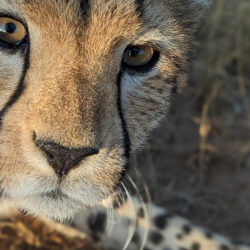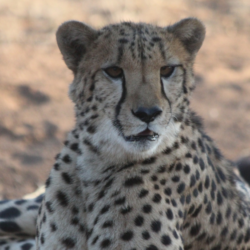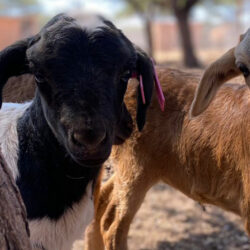My Work as CCF’s Research Veterinarian
-

- by Ishmael N. Makamba March 23, 2018
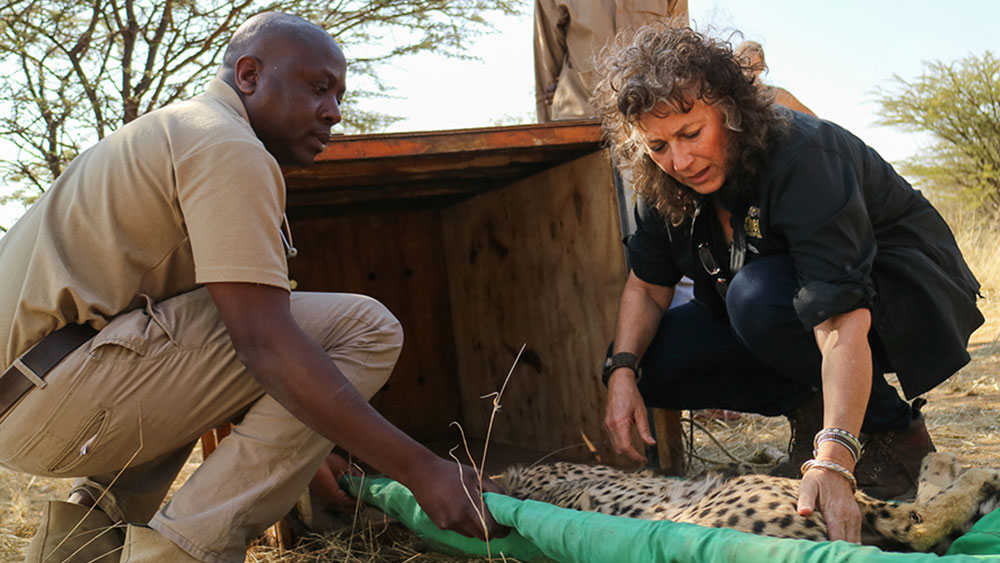
I am really excited with the prospects of the 2018 as we look forward to a breakthrough research on African Painted dogs (Lycaon pictus) in the Eastern Namibia Communal lands. The livestock losses from the dogs have meant an increase in the indiscriminate persecution of not only the African Painted Dog but also our flagship species the Cheetah (Acynonyx jubatus) as well as the Leopard (Panthera pardus). After 2 years of preliminary research on African Painted Dog hotspot areas and Human Wildlife Conflict, it is time for the next step. We plan to begin active tracking of the packs so as to collar at least one dog in any pack. This will allow us to study the pack movement and behavioral patterns and may eventually serve the community as an early warning system tool to reduce livestock losses.
By all means, this is not an easy task as the thorn-bush encroachment, fencing and gating network or system on the farmlands may mean our off-road accessibility to the dogs will be very limited. However from previous experiences with African Painted Dogs, our best bet will lie in waylaying them along road networks where they frequently trek and with consistency we will be lucky.
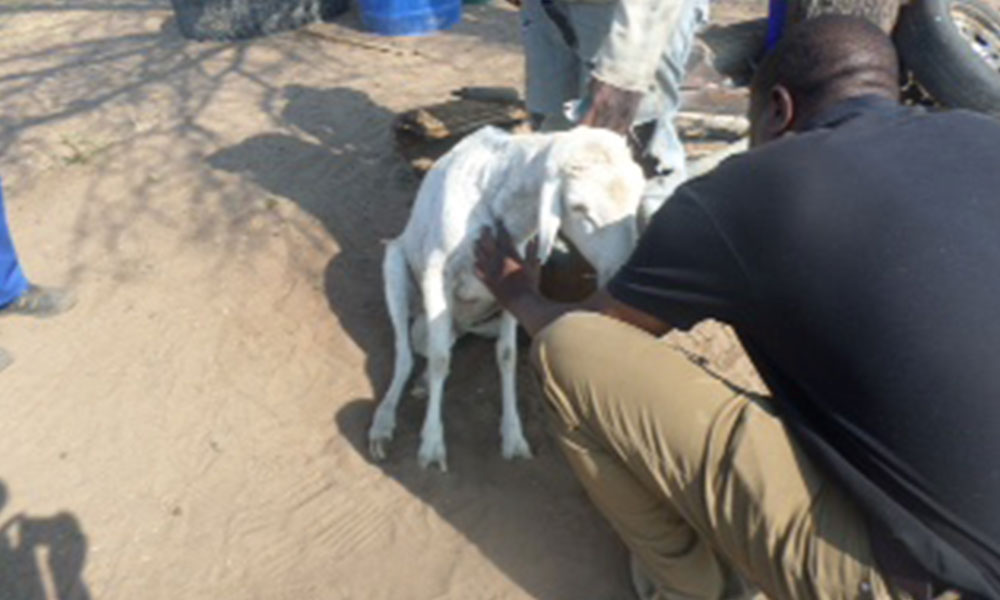
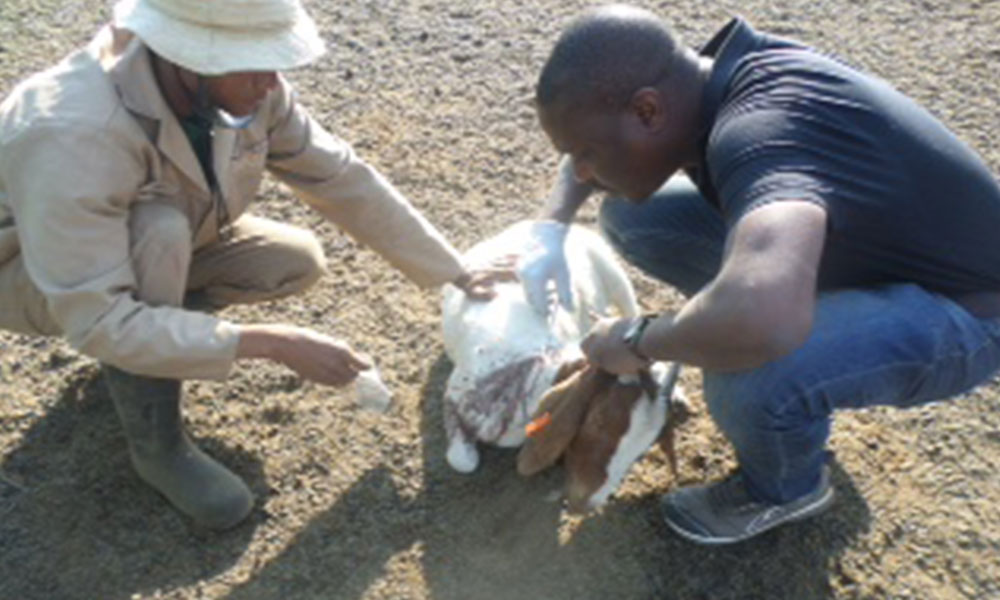
Ishmael visits a farm for a Farmer Hotline callout. CCF operates the Farmer Carnivore Help Hotline to give farmers the opportunity to report problems and ask for assistance when they are experiencing predator problems.
This should be the icing on the cake for me as I pretty much did not enjoy the festive season and incoming new-year mainly because I was preparing for my Board Examinations. In order for one to practice as a Veterinary Surgeon in Namibia, one needs to be unconditionally registered with the Veterinary Council of Namibia. This will entail going through two solid weeks of theory and practical examinations in the beginning of February of each year. Fortunately, I passed and can now execute my duties without a cloud hanging over me.
In short I will be able to help communal farmers on livestock health issues and already have treated numerous cases of ailments including lameness in bucks and rams, abscesses and mastitis in ewes and goats and all types of wounds in domestic dogs as a free service to the farmers. We do not end there, as we also inspect the infrastructure and livestock health and management practices of the farm through a comprehensive questionnaire/scorecard. As we compile this data, we will be able to identify areas where the farmers lack and then assist them the best we can.
Ongoing projects of interest include One Health Initiative research on Brucellosis in small stock, survey on the prevalence of gastrointestinal helminths in livestock in communal areas in our core operating area of The Greater Waterberg Landscape.
My work has not been without challenges. The major challenge and goal would be having a vehicle designated for field work, as in most cases we share the reliable vehicles that are also needed for the running of the cheetah project at the center. Nonetheless we have managed to cover vast areas and hope we will continue to do so. Other challenges off-cause will include missing home and family but I always find other ways to keep myself busy.
I have grown and learnt a lot professionally from Laurie on husbandry and behavior of cheetahs in the numerous workups that we have done and can indeed say from the many predators that I have dealt with the cheetah is the most vulnerable. This is a delicate animal. My heart cannot imagine what would have become of this species where it not for the young men and women who have devoted their lives to the conservation of this great species. I will thus endeavor to contribute in my own special way to allow the species to survive with man in a peaceful landscape.
Banner photo by Eliana Escobedo
Related Reading
-
March 8, 2024
Make a Positive Impact Toward Species Conservation -
November 28, 2023
Everything you need to know about the #BigGiveChristmasChallenge -
May 24, 2023
Lambing Season and Responsible Farming

